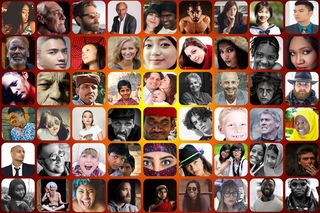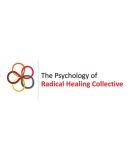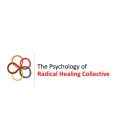Coronavirus Disease 2019
Radical Healing in Times of Fear and Uncertainty
It’s natural to feel scared and isolated during the COVID-19 pandemic.
Posted March 17, 2020 Reviewed by Jessica Schrader

By Helen A. Neville, Nayeli Y. Chavez-Dueñas, Hector Y. Adames, Bryana H. French, Jioni A. Lewis, Della V. Mosley, & Grace A. Chen, The Psychology of Radical Healing Collective.
“If you come together with a mission, and it's grounded with love and a sense of community, you can make the impossible possible.” —John Lewis (n.d. para. 11).
The novel coronavirus pandemic has increased the anxiety and fear of people around the globe. We fear for our health and the well-being of the most vulnerable members of our society. This includes older adults, people who have severe medical conditions and/or people who are immunocompromised, undocumented people and their families, people who are incarcerated or in detention centers, individuals who work in low-paying jobs and positions that do not provide sick leave or allow space for social distancing. Many of us are also connected to and concerned for loved ones in countries where the virus has already had a devastating impact.
In addition to the anxiety about the spread of the disease, many people fear the very real negative financial repercussions of taking time off of work, and worse, a global recession. The misinformation and lack of transparency at the national level serve to further reinforce an environment of fear, uncertainty, and panic. Radical healing may be a helpful resource for many communities of color in these times.
As a result of the government’s purposeful delay in addressing the coronavirus within our country, many people are feeling helpless and distrustful. Sadly, this is not the first time in our recent history that we have experienced this type of powerlessness. Many individuals may remember the emergence of the HIV/AIDS epidemic in the early 1980s. It was only as a result of protests by social activists that new treatment protocols were tested and culturally relevant education campaigns were developed.
To help slow down the spread of COVID-19, experts are encouraging people to practice social distancing and to isolate themselves from others. These practices are essential from a public health perspective, yet they can also take a psychological toll on us. After all, we are social beings and to isolate ourselves means that we are going against our nature.
Social isolation and (self) quarantine can trigger feelings of boredom, loneliness, anger, depression, and even suicidal thoughts, particularly during times when we may feel the natural need to be close to others due to fear and uncertainty. These measures can also exacerbate tensions in the home, thus adding to the further vulnerability of women and children who may be suffering from violence and abuse within their homes. To this end, the Substance Abuse and Mental Health Administration (SAMHSA) has developed a helpful list of resources and tips for people to cope with psychological distress during an infectious disease outbreak. SAMHSA’s resource list includes tips to work with employers to reduce financial stress and links to various mental health/social support hotlines.
Let’s Figure This Out Together
We believe key components of the psychology of radical healing can provide insights about ways to build connection and community while we practice social distancing and work toward healing during this crisis. Radical healing reminds us that our personal health is connected to the collective; it involves taking direct action to promote wellness at the individual, family, community, and societal levels. Radical healing encourages communities of color to draw on the resilience of our ancestors as we demand just and effective actions be taken to address the immediate concerns of COVID-19 and its unforeseen consequences. We offer the following five recommendations to promote radical healing at this time of fear and uncertainty.
1. Educate yourself and share information about the impact of COVID-19.
In addition to keeping informed about new developments of the pandemic through reputable sources such as the Centers for Disease Control and Prevention (CDC) and the World Health Organization (WHO), search out information and resources that offer a social justice perspective on the virus. Two excellent sites are the Coronavirus: Wisdom from a Social Justice Lens from Irresistible and the Futures Without Violence updates and information on COVID-19.
Those privileged enough to have access to news and resources available online can read through and evaluate the new developments and relay the information to family members or friends who, for a variety of reasons, may not have access to the same material. Those that speak other languages can help by translating, summarizing, and sharing this information to individuals who may not speak English.
2. Nurture your spirituality and practice self-compassion.
For individuals that are spiritual and/or religious, daily prayer, intentions, connecting with nature, readings, or journaling may be helpful ways to stay grounded and find a source of strength and hope amidst the chaos. This is also a perfect time to (re)commit yourself to a daily yoga and meditation practice. Scientific research outlines the benefits of both of these ancient practices. There are some excellent resources to help you on this journey, including: Liberate Meditate and Black Women’s Yoga History.
Additionally, data consistently document the benefits of self-compassion on health outcomes. For some people, showing kindness and understanding toward oneself may seem selfish. However, this is not the case. When we are able to be kind to ourselves, we are able to strengthen our compassion for others. Self-compassion can take many forms, but in the current moment, it could include letting go of perfectionism. We don’t have to be the perfect parent or student or worker. We may need to give ourselves permission to slow things down, breathe, and, at points, do very little. Explore additional ways to practice self-compassion.
3. Stay connected and increase emotional intimacy.
Most posts on similar topics encourage people to create communities facilitated by technology; that is, to check in on people within our social circles by calling, texting, or video chatting. Many video conferencing companies are offering free use of their services during this global pandemic.
In addition to these excellent ideas, this could be an opportunity to engage in longer and more intimate conversations with older family members. For example, you could interview a parent or grandparent about their lives and stories of resilience. Or, if you are older, you could record your own stories and give the recording to family members as a gift. In doing so, you have the opportunity to both document your family’s history and instill a sense of hope about our collective futures.
Another suggestion is to write a letter to a family member or friend who is incarcerated and thus increasing their connection to the outside world. This is a good time to remember that physical connection is only one of the many ways that we can express our affection to others. We can let our loved ones know how much they are cared for and appreciated.
4. Cultivate cultural understanding and curiosity.
In lieu of social outings, spend time learning more about your ethnic group’s history, culture, and art through books and movies. There are countless biopics, documentaries, feature-length films, historical fiction and non-fiction books tailored to every age group. If you are currently homeschooling your children due to school closures, this is a chance to tailor their social studies and history lessons to your cultural background. Research demonstrates that having a deeper understanding of one’s ethnocultural history and victories can promote educational outcomes among youth of color.
Additionally, learning about our histories and the histories of people who have survived group-based oppression can increase our shared humanity; and, the knowledge that when we work together, we have and we will conquer challenges and transform societies.
5. Take action to address racism and inequities related to COVID-19 and to promote health for all.
Use your voice to stand up and speak out against racism and xenophobia that harms communities of color. This includes the racist stereotyping of people of Asian descent who have been erroneously blamed for the spread of COVID-19 and who have been victims of microaggressions and hate crimes as a result. This also includes challenging racist assumptions that black people are immune to this virus.
There are additional ways in which communities of color remain vulnerable to the spread of COVID-19. Please stay vigilant to these inequities and support local actions to address them. For example, undocumented families may fear that, in seeking medical treatment and testing, they may risk deportation. In addition, undocumented immigrants are less likely to have health insurance and more likely to work in jobs that provide no sick days or medical leave. There are thousands of undocumented immigrants across the country; many are at risk because of the lack of coordinated health response and anti-immigrant practices.
Stay informed and support efforts attending to the human rights of immigrants. In addition, black, indigenous, and people of color in LGBTQIA communities tend to be most marginalized and impacted by inequities. Consider donating to this Mutual Aid fund for LGBTQIA+ BIPOC folks.
Your Voice Matters
Contact your congressperson and other elected officials; hold them accountable for ensuring increased availability of COVID-19 tests, funding for treatment protocols, financial support for families impacted by the crisis, and implementing policies to stave off a great recession as a response to the pandemic.
Now is the time to honor collectivism and interdependence. Though it’s natural to feel scared and isolated, we are seeing just how essential it is to remain interconnected to one another. The dominant narrative of individualism and self-service is only causing more harm. Most communities of color operate in a collectivist culture and lean on one another for support. The world needs this spirit of interdependence now more than ever as the act of one person can have such impacts on the broader community. Draw on our relational web and know that we are in this together!
References
French, B. H., Lewis, J. A., Mosley, D. V., Adames, H. Y., Chavez-Dueñas, N. Y., Chen, G. A., & Neville, H. A. (2020). Toward a psychological framework of radical healing in Communities of Color. The Counseling Psychologist, 48(1), 14-46. https://doi.org/10.1177/0011000019843506.
Lewis, J.R. (n.d.) John Lewis Quotes. Brainy Quotes. Retrieved from https://www.brainyquote.com/authors/john-lewis-quotes.




